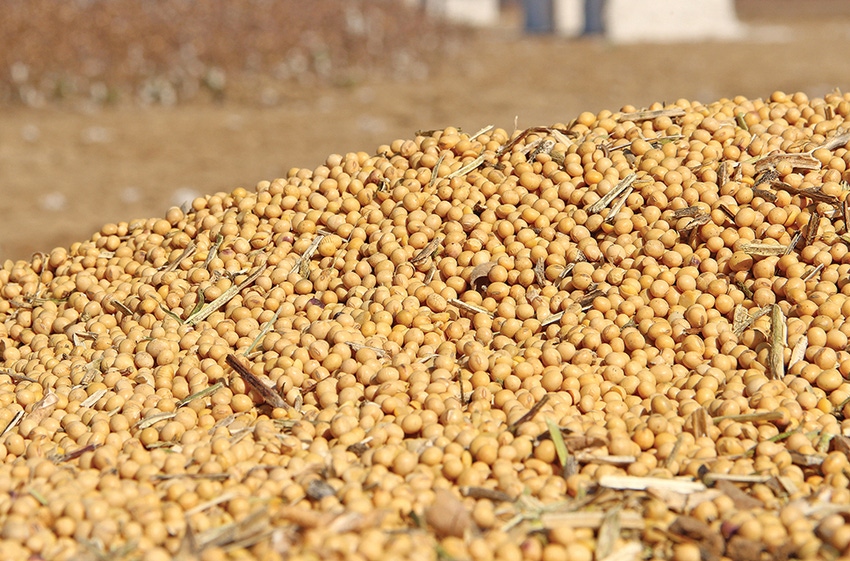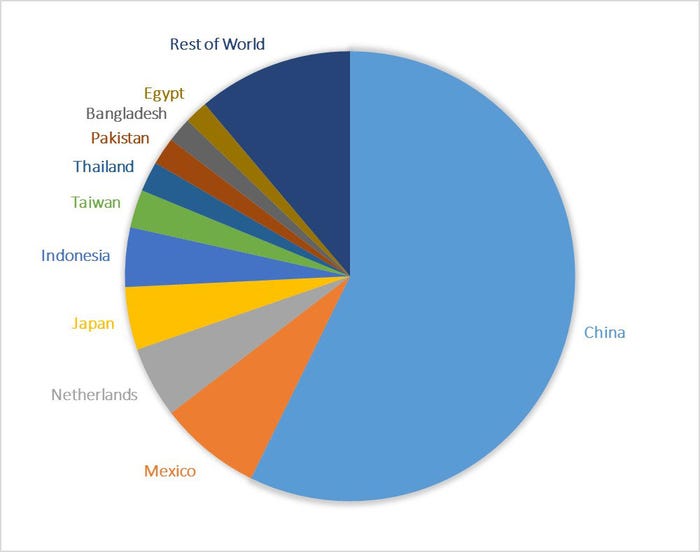
If China follows through on threats to impose retaliatory tariffs on U. S. soybeans, the implications for U.S. producers could be “profound,” according to a new analysis by two University of Tennessee Institute of Agriculture economists.
Andrew Muhammad, professor and Blasingame Chair of Excellence, and Aaron Smith, assistant professor, Department of Agricultural and Resource Economics, examine the impact of a potential retaliatory tariff from China in a new report, Evaluating the Impact of Retaliatory Tariffs on U.S. Soybeans in China.
“Our analysis indicates that exports could drop by $1.4 billion to $7.7 billion if a 25 percent tariff is applied to U.S. soybean exports to China, resulting in a potential farm-level loss of 33 cents to $1.76 per bushel,” Muhammad and Smith say.
If tariffs go higher, losses could be greater.
“Tennessee soybean producers already face tight margins,” the report adds, “and a reduction in farm-gate prices would add to their current financial strain.”
The report shows how vital China is to U.S. exports, especially agriculture. “China is a major market for U.S. agricultural exports and was the leading market until 2017,” the report says. In 2017 agricultural exports to China topped $19 billion with soybeans above $12 billion. Soybean exports exceeded all other ag commodity or food product categories.
“In 2017, U.S. soybean exports were nearly $22 billion. That year, China accounted for 57.3 percent of U.S. exports.” Mexico was second and Netherlands was third but represent a “markedly smaller” market for U.S. soybeans. Mexico accounted for only 7.4 percent and Netherlands only 5.1 percent.
“China has accounted for at least half of all U.S. soybean exports since 2005,” according to the report. Figure 1.

Figure 1. U.S. soybean exports by destination market: 2017 (total exports, $21.6 billion)
Muhammad and Smith say soybeans play a significant role in Tennessee’s agricultural economy. It is the biggest crop by both acreage and value, a five-year average of 1.66 million acres, and $796 million. Tennessee ranks 16 in the country in soybean production.
Nationwide, soybean production has increased steadily over the past five years, from 91.4 million metric tons in 2013 to 119.5 million metric tons in 2017/2018. Acreage has gone up from 76.8 million to 90.1 million in that time.
See also: https://bit.ly/2HJyjdE
“With the exception of the 2017/2018 marketing year, U.S. soybean exports have increased and have consistently accounted for about half of total U.S. production, ranging from 46.9 percent to 50.6 percent in 2016/2017.”
The predicament began with President Trump’s proclamation March 8 indicating intent to impose tariffs on steel and aluminum imports. In a memorandum March 22, President Trump proposed to impose $50 billion in tariffs on Chinese goods.
Trump’s actions were based on the potential to threaten national security (steel and aluminum) and unfair policies and practices related to intellectual property rights and technology transfer when U.S companies do business in China.
The Chinese government responded to the tariffs by threatening its own tariffs, including soybeans.
“Although, as of April 16, nothing has been implemented, concerns have been raised by the U.S. soybean industry about potential negative impacts,” Muhammad and Smith write. “If the Chinese government retaliates…how could this impact U.S. soybean imports?”
Possibilities include loss of market to competitors, such as Brazil. “The issue is very important because the U.S. soybean sector is very dependent on global markets, with China the primary destination,” Smith and Muhammad report.
“Overall, Chinese retaliatory tariffs on U.S. soybeans would have a considerably negative impact on U.S. and Tennessee soybean farmers.”
The complete report is available at https://bit.ly/2rg7J1j.
About the Author(s)
You May Also Like






